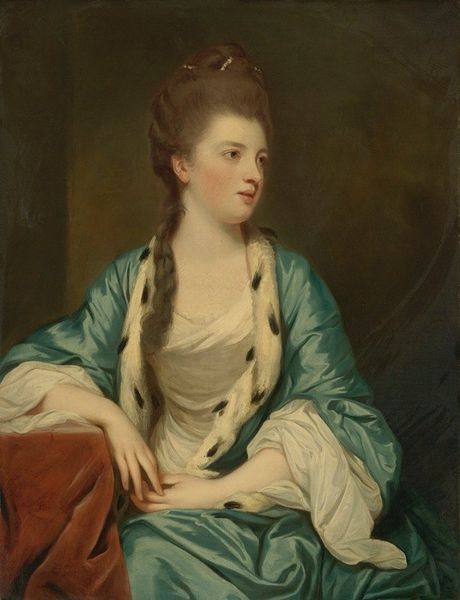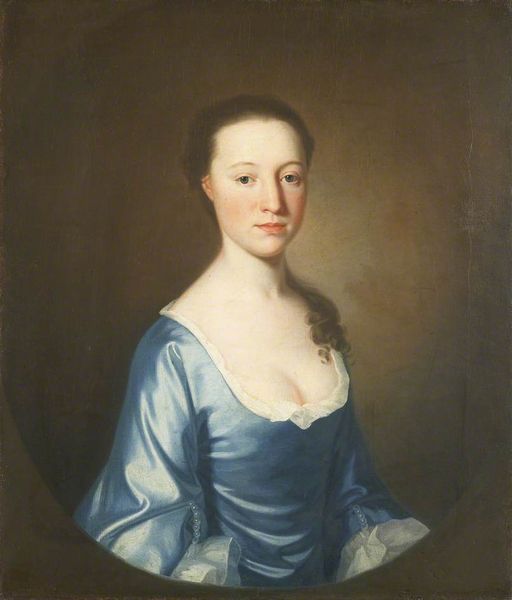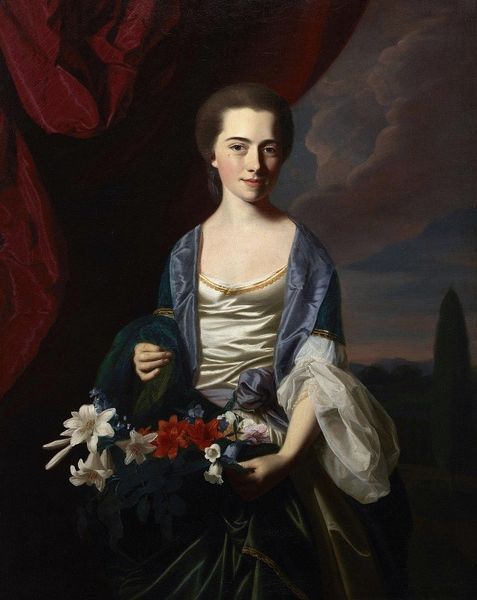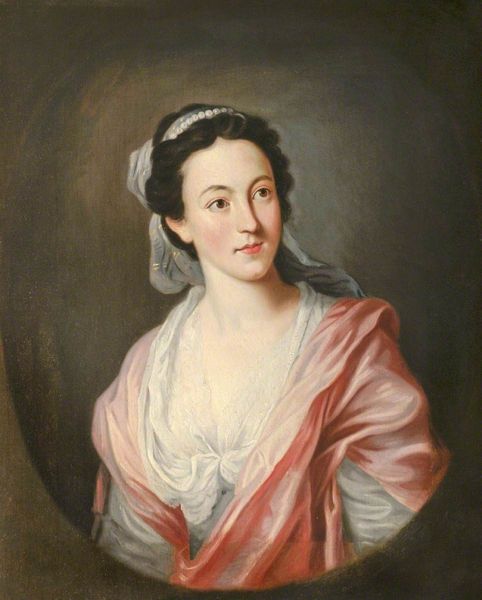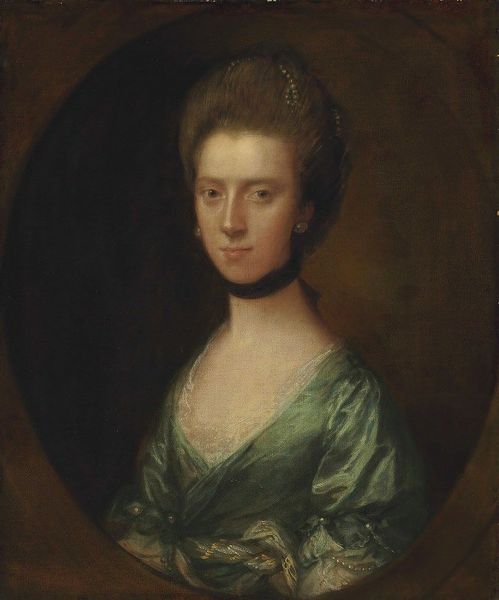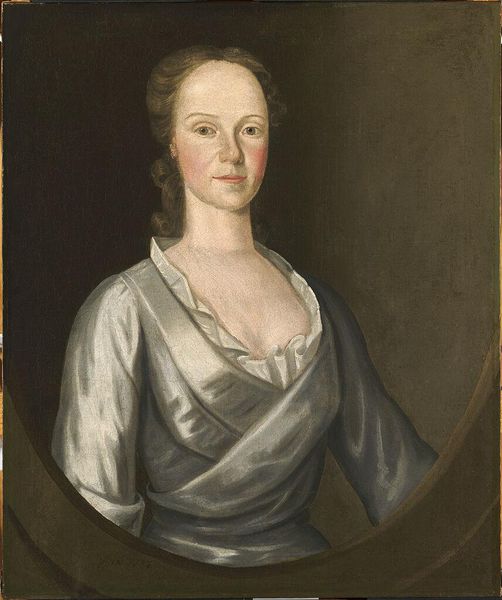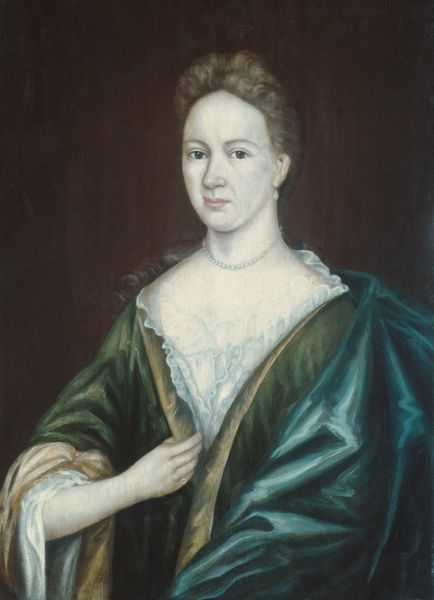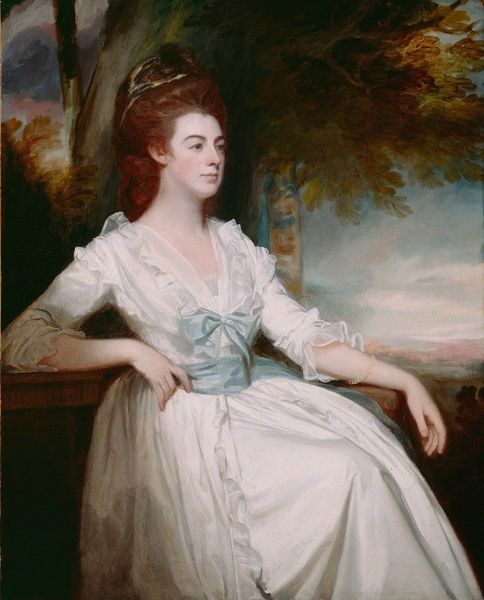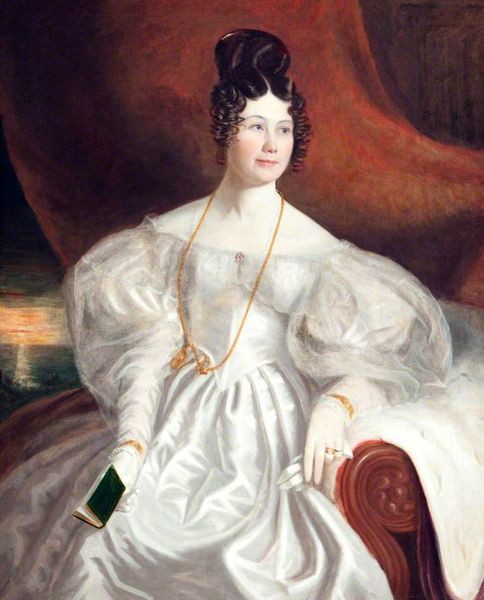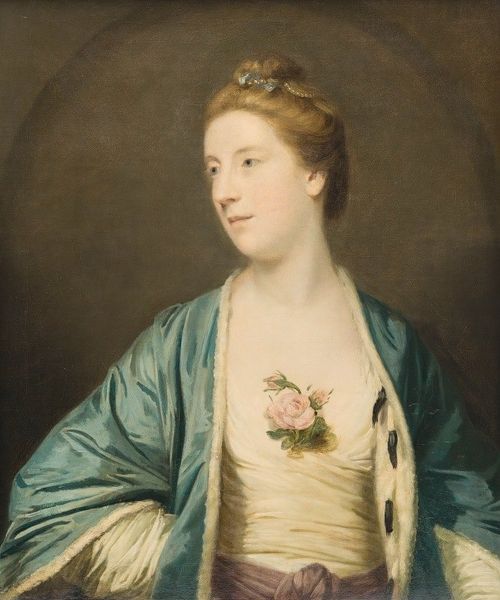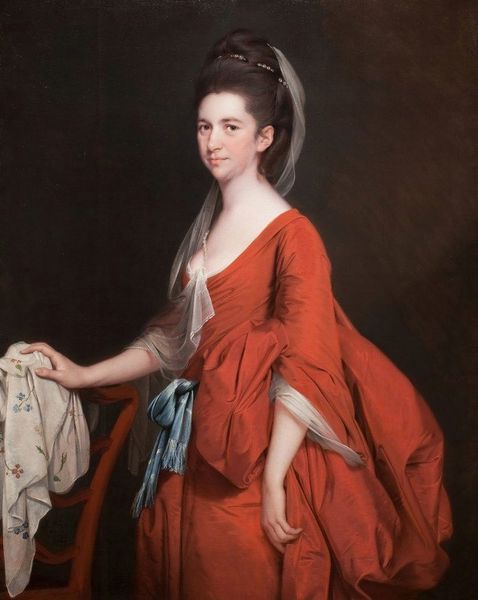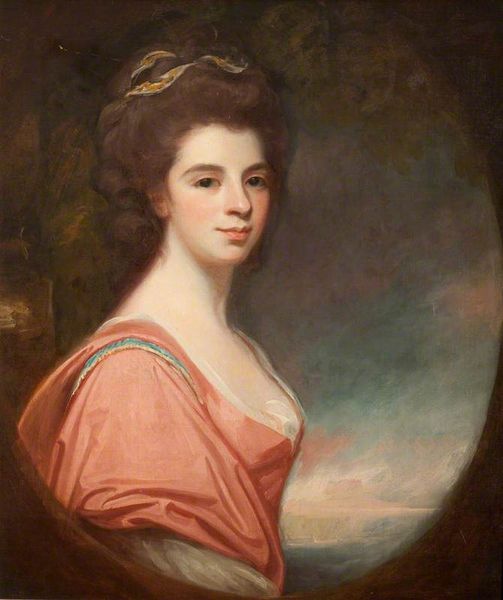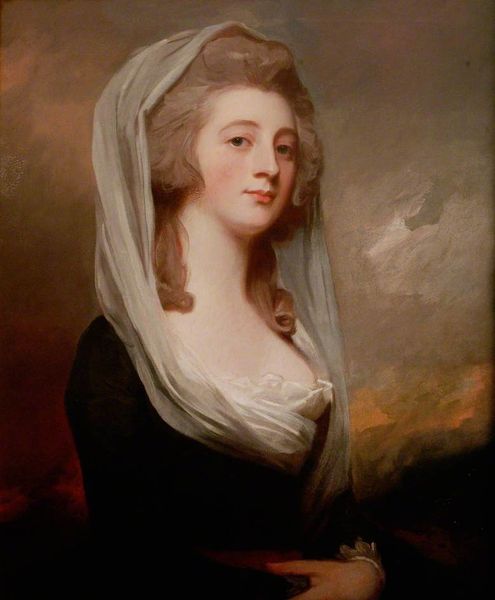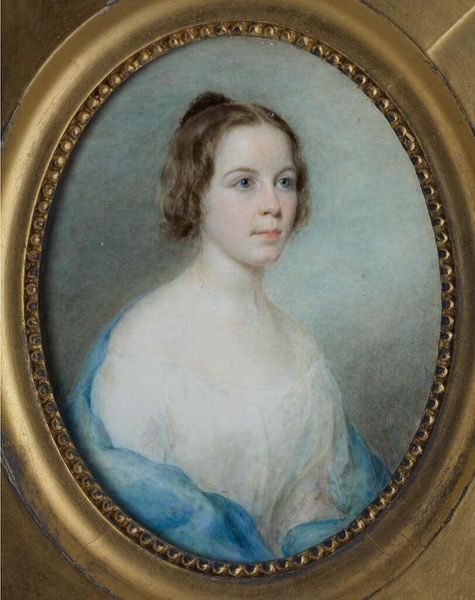
painting, oil-paint
#
portrait
#
painting
#
oil-paint
#
academic-art
#
rococo
Copyright: Public domain
Editor: Here we have George Romney's portrait of "Mrs Jane Wilson, n\u00e9e Morland, of Capplethwaite Hall, near Sedbergh," an oil painting. It immediately strikes me how the white fabric of her dress almost glows. What compositional elements stand out to you? Curator: The artist masterfully uses light and shadow to create a visual hierarchy. Note the chromatic range from the saturated blue to the stark whites and how it draws attention to her figure against a relatively muted ground. Editor: Yes, the way the fabric drapes creates so much movement. Can you tell me more about that? Curator: Consider how the folds, pleats, and highlights across the satin capture the quality of light as it reflects from the texture of the gown. Note too how that texture differs radically from that of her skin. What sort of statement might be made from this? Editor: So, it’s about contrasts? Highlighting differences in texture. Her smooth skin versus the dress. Does the plainness of the background serve to sharpen these details in the foreground? Curator: Precisely. By simplifying the background, Romney eliminates distractions. He ensures our focus is directed to those calculated nuances in light, texture, and ultimately, form. These elements together form an aesthetic impression about Mrs. Wilson's figure that could be interpreted and decoded further using semiotics. Editor: It’s amazing how much can be conveyed through these visual elements alone. I see so much more in it now. Curator: Agreed. Close formal analysis allows for decoding the intentional artistic expression and communicating the piece to others.
Comments
No comments
Be the first to comment and join the conversation on the ultimate creative platform.
